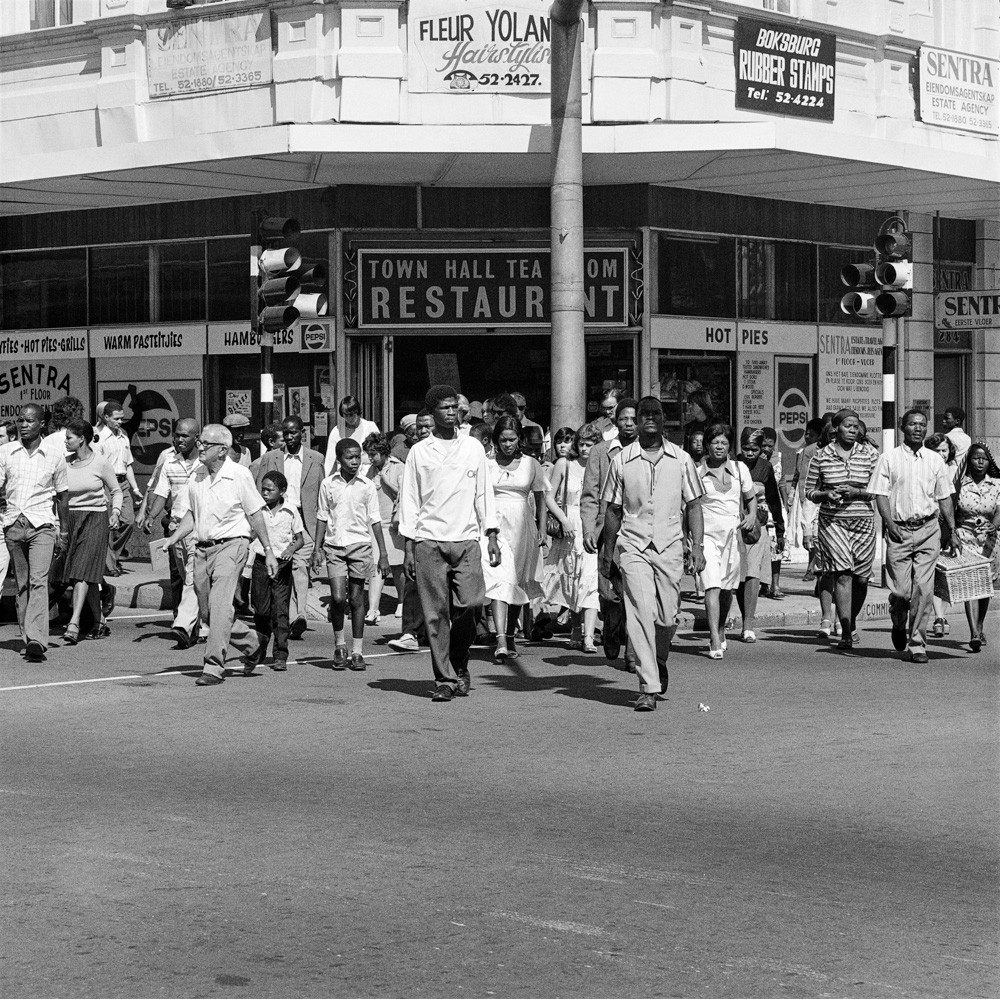Pace Gallery, New York, United States
26 Feb 2021 - 27 Mar 2021

David Goldblatt, Saturday morning at the corner of Commissioner and Trichardts Streets, 1979-1980. Gelatin silver hand print, 14-3/4" × 14-3/4" (37.5 cm × 37.5 cm), image 15-7/8" × 15-7/8" (40.3 cm × 40.3 cm), paper
Pace Gallery presents David Goldblatt: Strange Instrument, an exhibition that brings together 45 photographs documenting South Africa—where Goldblatt was born in 1930 and lived until his death in 2018—at the height of apartheid, between the early 1960s and the end of the 1980s.
Curated by artist and activist Zanele Muholi, who was Goldblatt’s friend and mentee, the exhibition offers a deeply personal meditation on the brutality and humanity that Goldblatt captured in his strikingly beautiful images of everyday lives under conditions of profound injustice. Strange Instrument—on view February 26 – March 27, 2021—marks the first time that Muholi has engaged with Goldblatt’s work since his passing in 2018. Taking an expansive and affective approach to their mentor’s body of work, the exhibition presents a portrait of Goldblatt himself through Muholi’s eyes.
David Goldblatt was renowned for creating powerful images that revealed the complex and far-reaching dynamics of apartheid, as well as the post-apartheid conditions that continue to impact his native country to this day.
Surveying the diverse range of Goldblatt’s output, the show encompasses portraits and street scenes shot on the corners and parks of Johannesburg and other cities, as well as in neighborhoods and segregated townships where black and “colored” communities lived. Many such locales were later subjected to systematic demolition and dispossession of land, making Goldblatt’s photographs some of their only existing documentation. Such scenes are interwoven with images of commerce, architecture, mining, religion, leisure, and domestic life. The earliest image in the exhibition dates to 1962—just over a decade after the segregationist National Party rose to power in South Africa—and the latest work dates to 1990, the year that anti-apartheid revolutionary Nelson Mandela was freed from prison. Goldblatt did not consider himself an activist and never set out to make political work or anti-apartheid “propaganda”; however, he was always clear about his mission to expose the social and interpersonal reality of South Africa’s policies. “I will not allow my work to be compromised,” he once declared in an interview with Art21 which was filmed and edited in the months prior to his passing in June 2018. “I comprise every day just by drawing breath in this country.”